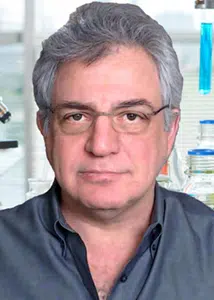Investigator:
Ronald Emeson, PhD
Name of Institution:
Vanderbilt University, Nashville, TN
Project Title:
ADAR-Mediated LRRK2 Therapeutics in Parkinson’s Disease
Investigator Bio:
Dr. Emeson is the Joel G. Hardman and Mary K. Parr Professor of Pharmacology at the Vanderbilt University School of Medicine. He received his undergraduate training in Biology at the Johns Hopkins University in New York before engaging in graduate studies at the University of Colorado Health Sciences Center and then the Johns Hopkins University School of Medicine. After receiving his PhD in Physiology in 1986, Dr. Emeson pursued a postdoctoral fellowship in molecular neurobiology at the University of California, San Diego. He has a broad background in the molecular neurobiology of brain disorders with more than 30 years of experience using both in vitro and in vivo systems to examine the molecular bases and functional consequences of RNA processing events in the nervous system.
Objective:
To harness the power of the cell’s RNA editing repair machinery to modify the pathogenic variant of the leucine-rich repeat kinase 2 (LRRK2) gene which leads to Parkinson disease (PD).
Background:
Mutations in LRRK2 have been shown to be a cause of PD, and this gene has emerged as one of the most important to be associated with familial and sporadic PD. Recent advances in gene editing technologies have provided an opportunity for targeted genomic engineering to correct genetic mutations identified in patients diagnosed with PD. One approach for targeted engineering of genetic mutations in to “repair” mutant messenger RNAs (mRNAs) rather than the DNA itself, by taking advantage of cellular machinery normally involved in the editing of RNA transcripts. This machinery consists of a family of enzymes called Adenosine Deaminases Acting on RNAs (ADARs)
Methods/Design:
This project proposes to design a short piece of RNA that will bear the same mutation as the most common PD-associated variant of the LRRK2 gene, G2019S, and act as an ADAR-recruiting RNA (arRNA). This short piece of RNA will recruit the specific ADAR that can repair it as well as the mutant RNA of LRRK2. These studies will aim to repair mutant LRRK2 transcripts expressed in human stem cells isolated from a PD patient carrying the mutation.
Relevance to Diagnosis/Treatment of Parkinson’s Disease:
The goal of these studies is the pre-clinical development of ADAR-recruiting RNAs as therapeutics tools in LRRK2 mutation-associated PD.

